| 1 |
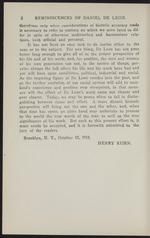 |
“...another, the men and women
of his own generation can not, in the nature of things, per-
ceive always the full effect his life and his work have had and
yet will have upon conditions, political, industrial and social.
As the imposing figure of De Leon recedes into the past, and
as the further evolution of our social system will add to man-
kinds experience and produce new viewpoints, in that meas-
ure will the effect of De Leons work come out clearer and
ever clearer. Today, we may be prone often to fail in distin-
guishing between cause and effect. A more distant historic
perspective will bring out the one and the other, and, when
that time has come, an abler hand may undertake to present
to the world the true worth of the man as well as the true
significance of his work. But such as this present effort is, it
must needs be accepted, and it is herewith submitted to the
jury of the readers.
Brooklyn, N. Y., October 15, 1918.
HENRY KUHN....”
|
|
| 2 |
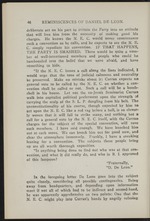 |
“...Make no mistake about it: Curran expects no
general vote to be called by the N. E. C. on whether a con-
vention shall be called or not. Such a call will be a bomb-
shell in his house. Let not the ex-Jesuit Seminarist Curran
walk into capitalist political preferment upon the strength of
carrying the scalp of the S. L. P. dangling from his belt. The
unconstitutionality of his course, though expected by him to
act upon the N. E. C. like a red rag before a bull, is so clever-
ly woven that it will fail to strike many, and nothing but a
call for a general vote by the N. E. C. itself, with the Curran
charges for the subject of the special convention, will save
such members. I have said enough. We have knocked him
out at each move. We can knock him out for good now, and
clear the atmosphere immensely. Frankly, I have a sneaking
leaning for a convention. The subjects these people bring
up are all worth thorough exposition.
"Is anything being done to find out who was at that con-
vention, and what...”
|
|
| 3 |
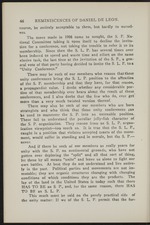 |
“...S. L. P. position to the attention
of the S. P. membership and that they have, for that reason,
a propagandist value. I doubt whether any considerable por-
tion of that membership ever hears about the result of these
conferences, and I also doubt that the few who do, ever get
more than a very much twisted version thereof.
There may also be such of our members who are born
strategists and who think that these unity conferences pan
be used to maneuver the S. P. into an untenable position.
These fail to understand the peculiar jelly-fish character of
the S. P. organization. They reason from an S. L. P. organ-
ization viewpointtoo much so. It is true that the S. L. P.,
caught in a position that violates accepted tenets of the move-
ment, would suffer in standing and in morale, but the S. P.
never.
And if there be such of our members as really yearn for
unity with the S. P. on sentimental grounds, who have not
gotten over deploring the split and all that sort of thing,
let these by all means...”
|
|
| 4 |
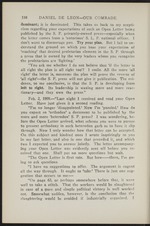 |
“...no
DANIEL DE LEONOUR COMRADE.
dominant; it is dominated. This takes us back to my scepti-
cism regarding your expectations of such an Open Letter being
published by the S. P. privately-owned pressespecially when
the letter comes from a notorious S. L. P. national officer. I
dont want to discourage you. Try your plan. But I fail to un-
derstand the ground on which you base your expectation of
reaching that desired proletarian element in the S. P. through
a press that is owned by the very leaders whom you recognize
the proletarians are fighting.
You ask me whether I do not believe that if the letter is
all right the plan is all right too? I smile. All the more 'all
right the letter is, meseems the plan will prove the reverse of
all rightthe S. P. press will not give it publication. The evi-
dence, to me conclusive, is that the S. P. is developing from
left to right. Its leadership is waxing more and more reac-
tionaryand they own the press.
Feb. 2, 1909.Last night I received and read your...”
|
|
| 5 |
 |
“...industrial union movement.
In 1906 the Socialist Labor Party, against the protest ot
some of its members, bowed to the revolutionary quirements
pSupTwi."* iodly! onr'thI, in
element in the Socialist Party was believed to be wher
as in the decade that has passed since it has proved itself to
be very much like the rest of the Socialist Party-revolut.on-
MLrhft?me,Towever,^when by pressure
capitalism threatening the whole labor movement,
ment of revolutionary forces was actually industrial
like Debs to fail to appear at a convention of the Indust
Workers of the World when it was known that ^
^how its head and would have to be combatted was
fenay the working class. Before relating ^ -
b 1, ntno-c at the second convention of the inaustnai
X,k,, of .he Would .om. of the .e.i.itie, d oceur.euee.
in the Socialist Labor Party should be ,
Henry Kuhn resigned as national secretary of the party, a...”
|
|
| 6 |
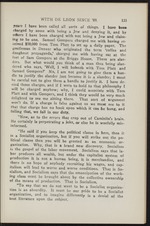 |
“...dle to justify the slander just because it is a slander; I must
be careful not to give them a handle to justify it. I have de-
nied those charges, and if I were to hold to that philosophy I
will be charged anyhow; why, I could associate with Tom
Platt and with Gompers, and I think they would be very much
delighted to see me sitting there. That sort of argument
wont do. If a charge is false against us we must see to it
that that charge has no hook upon which it can be hung, and
failing that, we fail in our duty.
Now, as to the errors that crop out of Caminitas brain.
He certainly is perpetrating a joke, or else he is woefully mis-
informed.
He said if you keep the political clause in here, then it
S a Socialist organization, but if you will strike out the po-
litical clause then you will be greeted as an economic or-
ganization. Why, that is a brand new discovery. Socialism
IS the gospel of the labor movement. Socialism says that la-
bor produces all wealth, but under the capitalist system...”
|
|
| 7 |
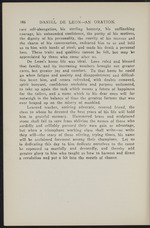 |
“...refreshed, with doubts removed,
spirit buoyant, confidence unshaken and purpose undaunted,
to take up again the task which means a future of happiness
for the toilers, and a name which to his dear ones will far
outweigh in the balance of time the greatest fortune that was
ever heaped up on the misery of mankind.
Learned teacher, untiring advocate, revered friend, the
class to whom he devoted the best years of his life will hold
him in grateful memory. Hammered brass and sculptured
stone shall fail to save from oblivion the names of those who
sordidly and selfishly pursued their own gain or advantage,
but when a triumphant working class shall writeas write
they willthe story of these stirring, trying times, his name
will be acclaimed foremost among their champions. Let us
in dedicating this day to him dedicate ourselves to the cause
he espoused so manfully and devotedly, and thereby add
greater glory to him who taught us how to harness and direct
a revolution and put a bit into the mouth...”
|
|
